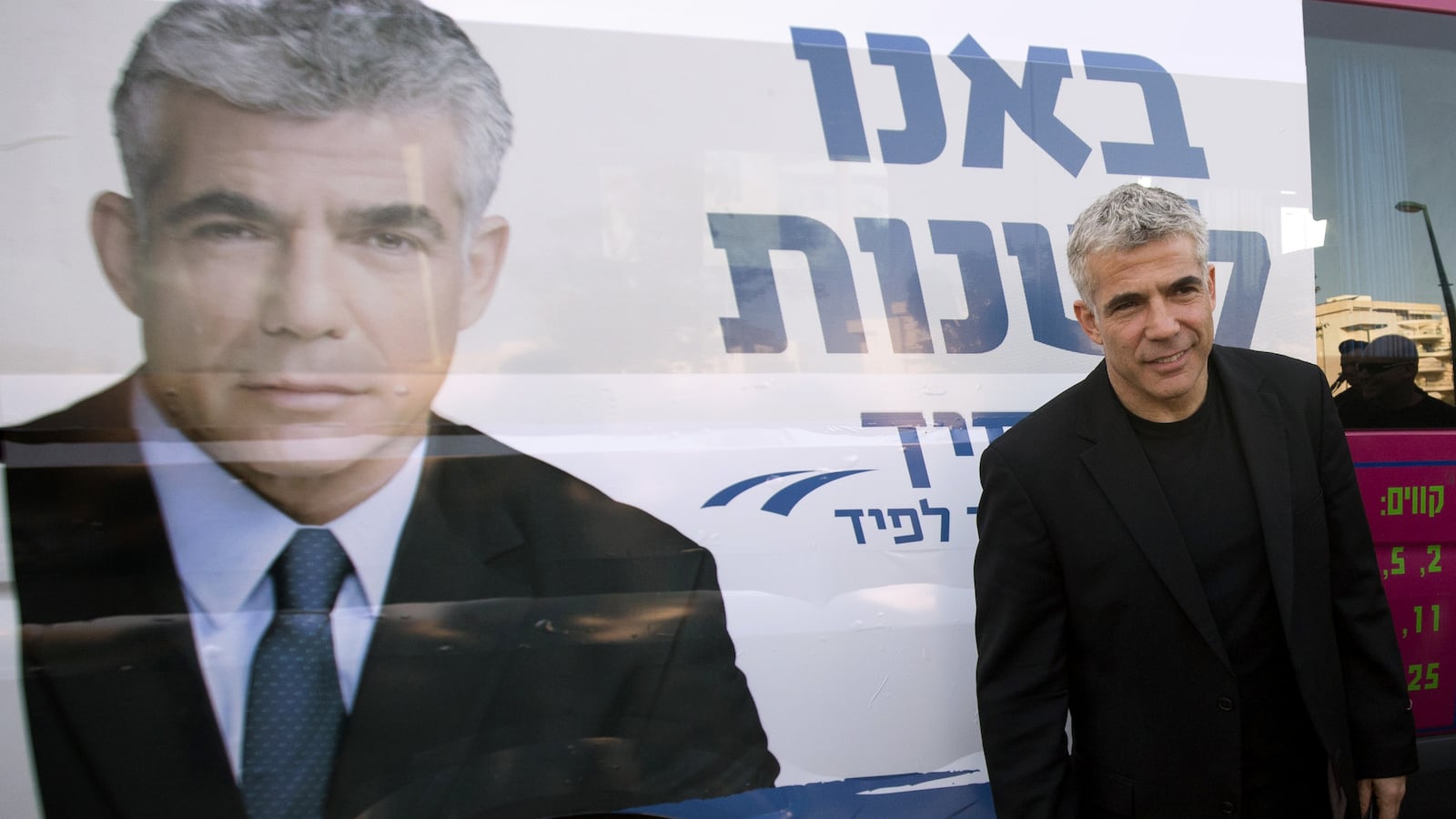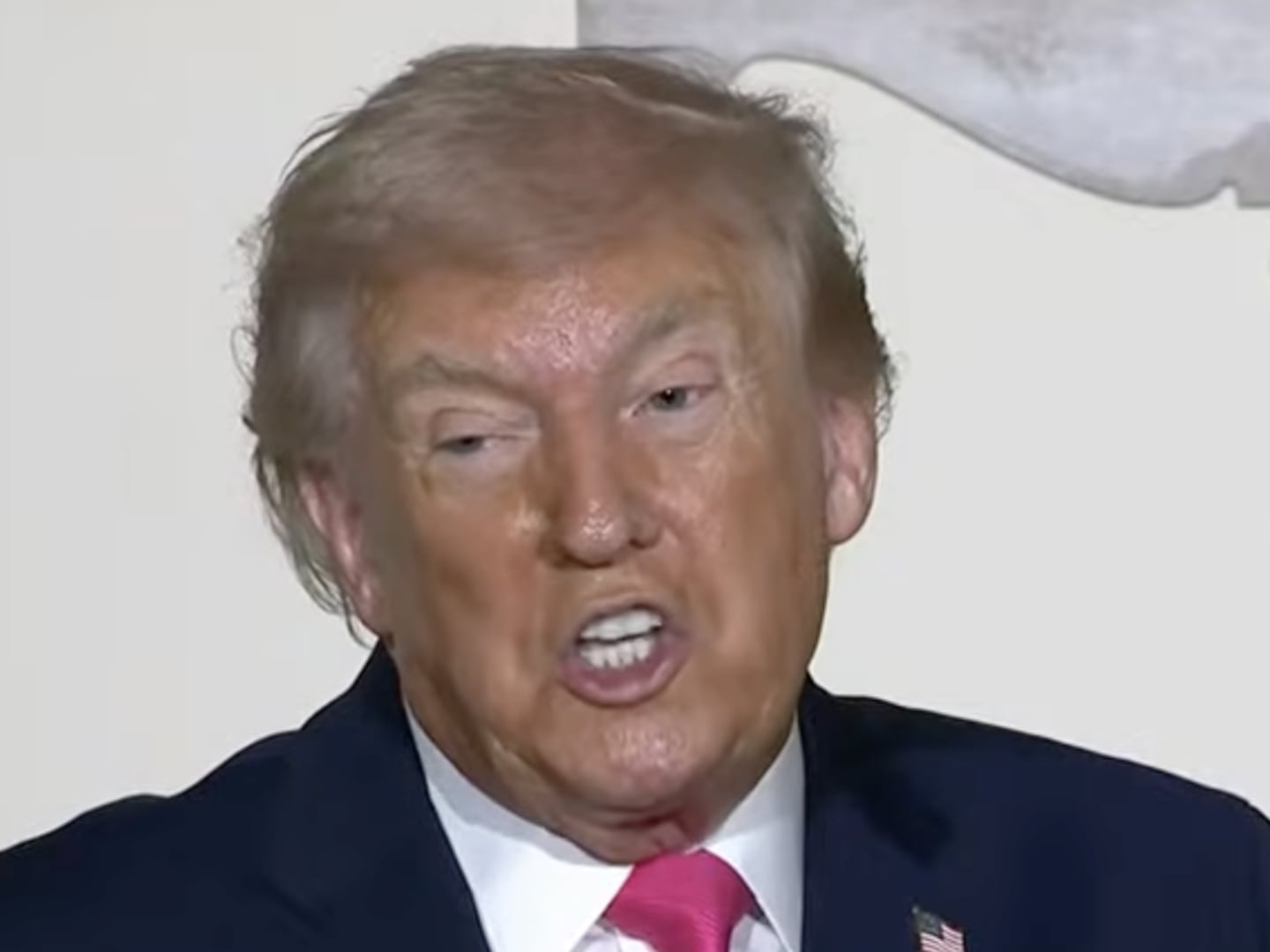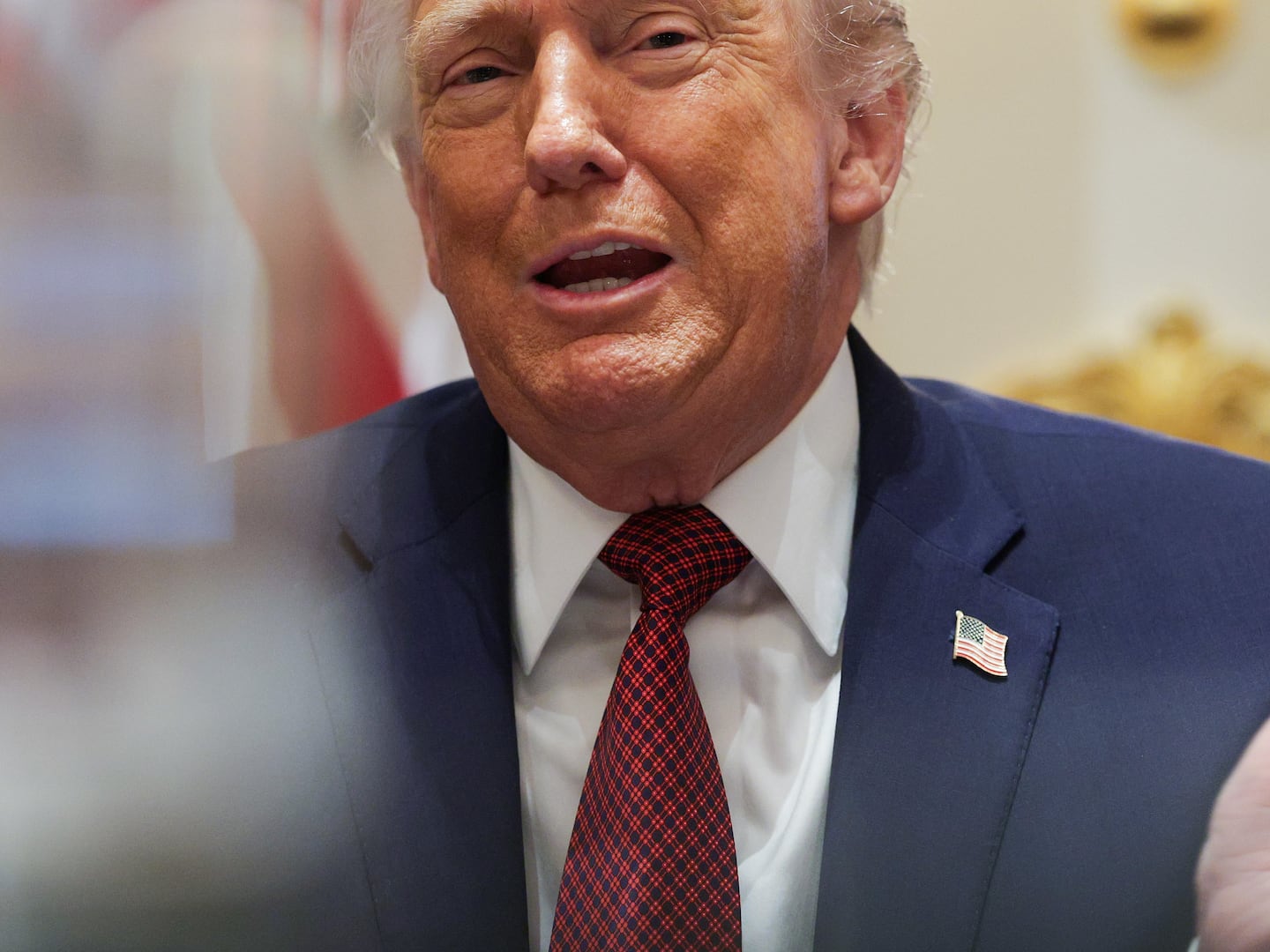The general consensus among smart Israel-watchers in the days since the January 22 Knesset election has been that Yair Lapid’s big win and his emerging partnership with a reelected Prime Minister Benjamin Netanyahu put the peace process in the deep freeze. This was apparent from Lapid’s campaign, which focused entirely on domestic issues, beginning with ending the yeshiva-student draft exemption and continuing with middle-class tax relief.
It looks like the smart money was dead wrong. The initial red lines Lapid laid down right after the election as his opening gambit in coalition talks are ending the yeshiva exemption and—surprise—reopening peace negotiations with the Palestinian Authority. Right now his inner circle is debating furiously over which one takes priority. And it looks like peace negotiations will win out.

The reason they must choose is that this determines who will be invited to join Netanyahu and Lapid as the third leg of the new coalition. The two lead partners have 50 seats between them in the 120-member parliament, so they need one more bloc of votes to give them a stable majority. Many in the peace camp were hoping the negotiators would look to Lapid’s left, to Labor and Tzipi Livni’s Hatnuah, to build a solid front for peace and domestic reforms. But Netanyahu won’t let that happen. As prime minister, he won’t allow himself to be the right flank of his own government. Instead, they are looking rightward, either to Naftali Bennett’s Jewish Home party or to the haredi Sephardic Shas party and perhaps its haredi Ashkenazic ally, United Torah Judaism.
If they choose the settler-based Jewish Home, they can proceed with draft reform and other domestic priorities, but the peace process gets put on ice. If they choose the haredim, serious reform of the draft laws becomes very problematic, but reigniting the peace process becomes possible—especially with the return to Shas leadership of the party’s disgraced founder, Aryeh Deri, a relative dove. Reports are now coming from Netanyahu’s camp that he’s leaning toward excluding Bennett and bringing in Shas, which would mean watering down draft reform in exchange for returning to the peace process.
This will come as a big surprise to all the commentators who thought they had Lapid figured out. Looking back at his campaign, they’ve seen him ignoring the peace process almost entirely, focusing on purely domestic issues and even flirting with the hard right, rolling out his foreign policy platform at an address in Ariel and promising never to divide Jerusalem. For Americans who haven’t read his weekly columns for the past decade in the Hebrew-language Yediot Ahronot, and even for cynical Israeli progressives who have given up on peace and politicians, those were taken as dead giveaways.
In other words, Lapid watchers were reading a politician’s intentions from his campaign promises. That’s never a good idea.
The best way to judge an Israeli political leader is by looking at his or her list—the party’s slate of candidates. It’s been conventional wisdom for months that third-term Netanyahu would be even more hard-line than he was in his last term because of the far-right list that emerged from last year’s Likud primaries. Bennett’s high-tech, yuppie façade was understood to be a distraction from his real identity, which could be seen through the hardcore settler activist cadres who dominate his list.
Lapid, unburdened by a primary process or party structure, hand-picked his list. The first person he named, in a dramatic mid-October press conference in Tel Aviv, was Yaakov Perry, former director the Shin Bet security service and a star of the Oscar-nominated Israeli documentary “The Gatekeepers,” which features six former Shin Bet chiefs discussing the urgency of Israeli-Palestinian peace. Perry is one of the prime movers behind the 2011 Israel Peace Initiative, which enlists ex-security chiefs and business leaders to push for adoption of the 2002 Arab Peace Initiative as a basis for a two-state peace agreement based on the pre-1967 lines. Restarting the peace process was one of his main motives in entering politics. He helped formulate Lapid’s late October foreign policy speech in Ariel. In the speech, Lapid attacked Netanyahu for claiming the Palestinian Authority wasn’t a partner for peace and announced that he wouldn’t serve in a government that didn’t return to peace talks.
The rest of Lapid’s list is studded with doves and progressives, most notably two-term Herzliya mayor and longtime Meretz leader Yael German in the No. 3 slot and military affairs journalist Ofer Shelah at No. 6. It’s also worth noting that his list, unique among the parties, includes four outspoken advocates of religious pluralism and liberalization, including two progressive Orthodox rabbis and two women’s religious rights advocates.
The man to watch, though, is Perry, who has emerged since the elections as the party’s most visible spokesman. A banker since leaving the Shin Bet in 1994, he has emerged in recent years as one of the most energetic and creative actors in the peace camp. Now aged 68, he surely didn’t enter politics as a way to slow down.






